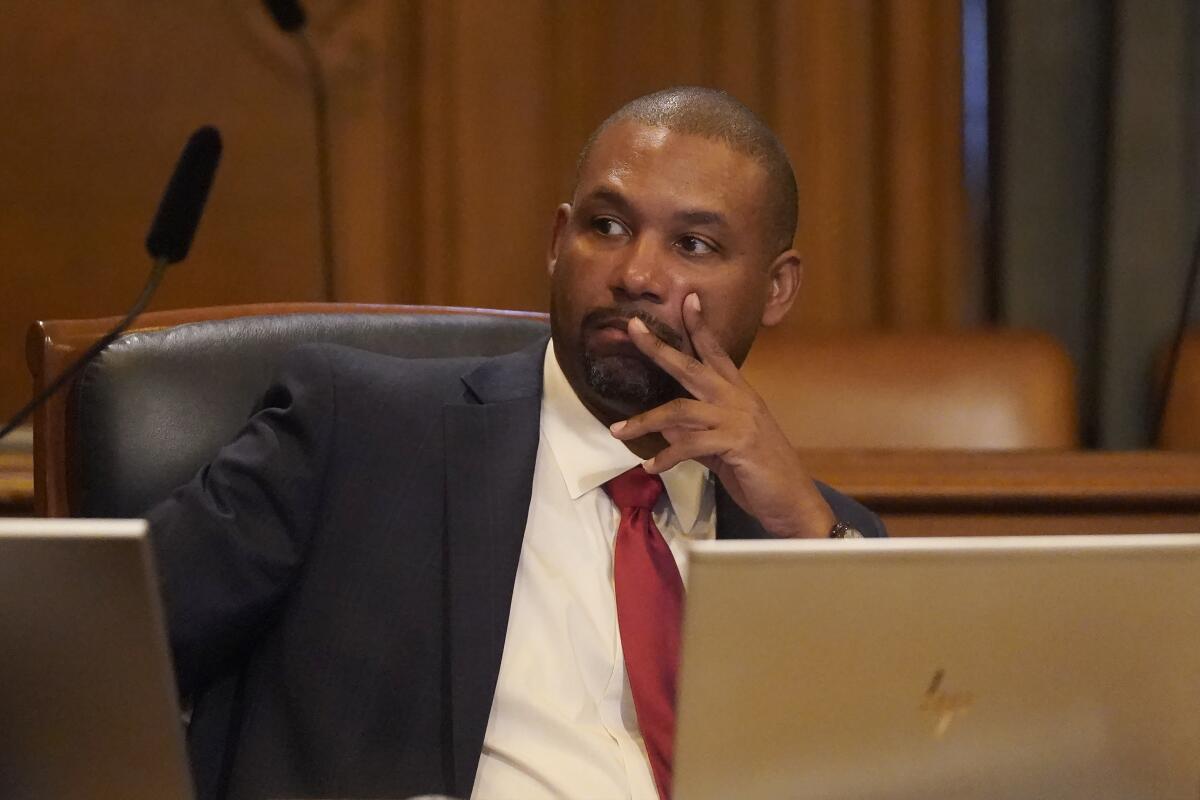San Francisco set to apologize to Black residents for ‘systemic racism’

- Share via
The San Francisco Board of Supervisors is set to officially apologize to Black residents for centuries of “systemic racism,” though large disagreements still exist over how the county will address past wrongs.
On Thursday, members of the board gathered to put forward a seven-page resolution that spells out and takes responsibility for the history of discrimination against Black San Franciscans through processes like red-lining and urban renewal.
The apology resolution is one action taken from a report written by the county’s African American Reparations Advisory Committee, which put forward more than 100 recommendations.
“As we continue this fight for reparations and this fight to right the wrongs of the past, this apology resolution is just another step to achieve that goal,” said Supervisor Shamann Walton, who was the author of the resolution.
Walton called the resolution “very concrete and not just symbolic.”

The resolution, which is co-sponsored by 10 of the 11 members of the Board of Supervisors, was moved forward Thursday to the full board for a vote.
The reparations committee, which advises the city and county on a reparations development plan, was formed in 2020. It submitted a report to the mayor and board last July calling for lump sum payments of $5 million to each of the city’s Black residents along with supplementing the income of low-income Black households for the next 250 years.
The financial objectives of the committee’s report are not likely to be realized soon. Mayor London Breed has opposed the cash payments, saying they should be handled at the state or federal level. Meanwhile, Californians largely reject the idea of reparations through cash payments for Black people living in the state, according to polling done by the UC Berkeley Institute of Governmental Studies poll, co-sponsored by The Times.
Black Californians, however, supported the cash payments, according to the poll, with 51% saying they “strongly support” the idea.
The San Francisco resolution was touted as historic by the board, but during the public comment period numerous San Franciscans — including some on the African American Reparations Advisory Committee — expressed skepticism that an apology would lead to more substantive action.
Eric McDonnell, who chaired the committee, called the apology “notable and significant” and a “first step.”
“However, it will ring hollow if it isn’t followed by active and even aggressive efforts to address the pains of the past through monetary repair and to disrupt the current inequities through policy and programmatic reform and implementation,” he said.
Some in the crowd thought that was not enough.
Former Supervisor Amos Brown called on the board to go further.
“It’s time we not take steps. We morally ought to be taking leaps,” said the former legislator. “An apology is not enough. An apology is cotton candy rhetoric. What we need is concrete actions.”
More to Read
Sign up for Essential California
The most important California stories and recommendations in your inbox every morning.
You may occasionally receive promotional content from the Los Angeles Times.











